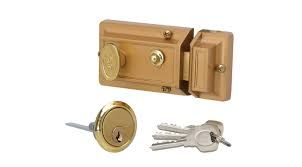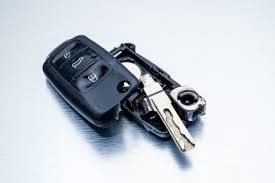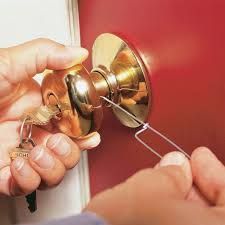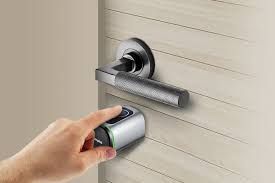What type of keys can a locksmith duplicate for you
Key Duplication
As experts in locksmith services, we understand the critical role that key duplication plays in ensuring security and convenience for our clients. From residential properties to commercial establishments, having duplicate keys on hand can be a lifesaver in various situations. In this comprehensive guide, we delve into the wide array of keys and items that locksmiths like us can duplicate for you.
Read here about Securing a door lock with traditional locks!
Whether it's duplicating house keys to provide spare sets for family members or creating backup car keys for emergencies, the ability to duplicate keys efficiently and accurately is a cornerstone of our profession. We take pride in our expertise and precision, ensuring that each duplicate key we produce is of the highest quality and fully functional.
But our services extend beyond traditional keys. We also specialize in duplicating high-security keys, fob keys, and even safe keys, providing comprehensive solutions to meet all your security needs. With our advanced tools and extensive knowledge, we can handle even the most complex key duplication requests with ease.
Join us as we explore the world of key duplication and uncover the various types of keys and items that we, as locksmiths, can duplicate for you. Whether you're looking to enhance your home security or streamline access control for your business, we've got you covered. Let's dive in and discover the power of professional key duplication services.
Also read Is it cheaper to replace or rekey!
Types of Keys
House Keys
House keys are one of the most common types of keys that locksmiths duplicate for their clients. These keys typically come in various shapes and sizes, depending on the type of lock they are designed to operate. Duplicating house keys is essential for several reasons. Firstly, having spare keys can be incredibly convenient for homeowners, as it allows multiple family members or trusted individuals to access the property without the need for sharing a single key. Additionally, having backup keys ensures that homeowners are prepared for unexpected situations, such as losing their primary key or accidentally locking themselves out of their home. Professional locksmiths use specialized equipment and techniques to create accurate duplicates of house keys, ensuring that each copy functions seamlessly with the corresponding lock.
Car Keys
Car keys come in different forms, including traditional keys, transponder keys, and remote keys. Traditional car keys are the standard keys used to manually unlock and start older vehicle models. Transponder keys, on the other hand, contain a built-in chip programmed to communicate with the car's immobilizer system, providing an extra layer of security against theft. Remote keys, also known as key fobs, allow drivers to remotely lock, unlock, and start their vehicles with the press of a button. Duplicating car keys is essential for emergencies and situations where drivers may misplace or lose their original keys. By having spare car keys on hand, drivers can avoid being stranded without access to their vehicles. Professional locksmiths are equipped to duplicate all types of car keys accurately, ensuring that drivers have reliable backup options in case of emergencies.
Padlock Keys
Padlock keys are specifically designed to operate padlocks, which are portable locks commonly used to secure gates, fences, storage units, and other items. These keys are often smaller and more compact compared to house or car keys, making them convenient to carry around for quick access. Duplicating padlock keys is important for several reasons. Firstly, having spare padlock keys allows multiple users to access the same padlock, which is useful in shared spaces or when multiple individuals need access to a particular area or item. Additionally, having duplicate padlock keys serves as a backup in case the original key is lost or misplaced. This ensures that individuals can still access their belongings or secure areas even if the primary key is unavailable. Professional locksmiths have the expertise and equipment to accurately duplicate padlock keys, ensuring that each duplicate functions smoothly and seamlessly with the corresponding lock.

High-Security Keys
High-security keys are designed to offer enhanced protection against unauthorized duplication and picking. These keys often feature complex, unique designs and special features such as side bars, magnets, or dimples, making them more challenging to duplicate. Duplicating high-security keys requires specialized equipment and expertise due to their intricate designs and additional security measures. Additionally, there may be limitations and requirements imposed by manufacturers or locksmiths when duplicating high-security keys. These limitations may include the need for authorization from the key owner or adherence to specific security protocols to prevent unauthorized duplication and maintain the integrity of the key system.
Fob Keys
Fob keys, also known as key fobs or remote keyless entry keys, are electronic devices that allow users to remotely lock, unlock, and start their vehicles. These keys typically feature buttons for controlling various functions such as locking and unlocking doors, opening the trunk, and activating the car's alarm system. While duplicating traditional mechanical keys is relatively straightforward, duplicating fob keys presents unique challenges due to their electronic components and programming requirements. While some locksmiths may offer fob key duplication services, there are limitations and complexities involved, such as the need for access to specialized equipment and programming software. Additionally, fob key duplication may be restricted by manufacturers or dealerships to protect against unauthorized access and ensure the security of the vehicle.
Safe Keys
Safe keys are essential for accessing safes and secure storage containers used to protect valuable assets, documents, and sensitive information. These keys are often designed with unique profiles and intricate cuts to provide high levels of security and prevent unauthorized access. Duplicating safe keys requires careful consideration and adherence to strict security protocols to ensure the integrity of the locking system. Locksmiths may offer safe key duplication services, but they must follow specific procedures and verification steps to verify the identity and authorization of the key owner. Additionally, there may be regulations and requirements imposed by manufacturers or industry standards for duplicating safe keys, especially for high-security or restricted systems.
Master Keys
Master keys are powerful tools that provide authorized individuals with access to multiple locks within a master key system. These systems are commonly used in commercial buildings, hotels, and apartment complexes to grant different levels of access to various individuals or groups while maintaining overall security and control. Duplicating master keys requires careful consideration of security implications and authorization procedures to prevent unauthorized access. Locksmiths must follow strict protocols and obtain proper authorization from the key owner or system administrator before duplicating master keys. Additionally, there may be legal and regulatory requirements governing the duplication of master keys, especially in sensitive environments such as government facilities or healthcare institutions.
Restricted Keys
Restricted key systems are designed to provide enhanced security by limiting key duplication to authorized individuals or locksmiths. These systems typically use keys with patented designs or unique keyways that are difficult to replicate without proper authorization. Duplicating restricted keys requires adherence to strict security protocols and verification procedures to ensure that only authorized individuals can obtain duplicate keys. Locksmiths may be required to obtain authorization from the key owner or system administrator and verify the identity of the individual requesting key duplication. Additionally, there may be legal restrictions and industry regulations governing the duplication of restricted keys to prevent unauthorized access and protect the integrity of the locking system.
Conclusion
In conclusion, locksmiths play a crucial role in duplicating various types of keys, ranging from house keys and car keys to padlock keys and safe keys. Understanding the different types of keys and the requirements for duplicating them is essential for ensuring security and convenience in various scenarios. Whether it's duplicating keys for backup purposes, emergencies, or access control systems, locksmiths must adhere to strict security protocols and verification procedures to prevent unauthorized access and protect the integrity of the locking system.
From traditional keys to high-security and restricted keys, each type presents unique challenges and considerations for duplication. Locksmiths must stay informed about the latest technologies and regulations governing key duplication to provide reliable and secure services to their clients. By following best practices and maintaining the highest standards of professionalism and integrity, locksmiths can ensure that key duplication services are performed safely, accurately, and ethically.
In today's rapidly evolving security landscape, the role of locksmiths in key duplication remains as important as ever. As technology continues to advance and security threats evolve, locksmiths must adapt their skills and practices to meet the changing needs of their clients and the industry. By staying knowledgeable, skilled, and dedicated to their craft, locksmiths can continue to serve as trusted partners in ensuring the security and safety of homes, businesses, and communities.
Call Us Any Time!








